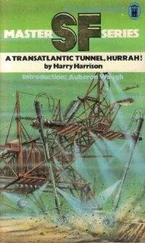Douglass walked along the shore. A tall-masted ship clung to the horizon. He watched it go. When he looked back towards the strand again, the women seemed to have disappeared into the earth. Only their dark overcoats could be seen. Every now and then they bent downwards, stooping in rhythm for whatever it was they might find.
HE EMERGES FROM THE BRIGHT ELEVATOR. MOVES THROUGH the marbled lobby towards the revolving door. Sixty-four years old. Slender. Graying. A slight strain of yesterday’s tennis in his body.
A dark blue suit jacket, slightly rumpled. A pale blue sweater underneath. Slacks creased. Nothing brash, nothing showy. Even the way he walks has a quiet to it. His shoes sound clean and sharp against the floor. He carries a small leather suitcase. He tilts his head towards the doorman who leans down to take the case: just a suit, a shirt, a shaving kit, an extra set of shoes. Under his other arm he keeps his briefcase tight.
Through the lobby quickly. He hears his name from several angles. The concierge, an elderly neighbor on the lobby couch, the handyman cleaning the large glass panes. It is as if the revolving door has caught the words and begun to let them spin. Mr. Mitchell. Senator. George. Sir.
The black town car sits idling outside the apartment building. A little shiver from its exhaust. A relief floods through him. No press. No photographers. A hard New York rain, so different from the Irish kind: hurrying itself along, impatient, dodging the umbrellas.
He steps out into the afternoon. Beyond the awning, an umbrella is held aloft for him and the car door is opened.
— Thank you, Ramon.
There is always a moment of dread that there might be someone waiting inside the car. Some news. Some report. Some bombing. No surrender.
He slips into the rear seat, lays his head against the cool leather. Forever an instant when he feels he can turn around, reinvent. That other life. Upstairs. Waiting. He has been the subject of many newspaper columns recently: his beautiful young wife, his new child, the peace process. It stuns him to think that he can still be copy after so many years. Captured on camera. Pulled through the electronic mill. His caricature on the op-ed pages, serious and spectacled. He’d like a long sweep of silence. Just to sit here in this seat and close his eyes. Allow himself a brief snooze.
The front door opens and Ramon slides into the seat, leans out, shakes the umbrella, glances over his shoulder.
— The usual, Senator?
Almost two hundred flights over the past three years. One every three days. New York to London, London to Belfast, Belfast to Dublin, Dublin to D.C., D.C. to New York. Jetliners, private planes, government charters. Trains, town cars, taxis. He lives out his life in two bodies, two wardrobes, two rooms, two clocks.
— JFK, yes. Thank you, Ramon.
The car shifts minutely underneath him, out onto Broadway. A familiar sudden loss, a sadness, the sorrow of a closed vehicle, moving away.
— Just a moment, Ramon, he says.
— Sir?
— I’ll be right back.
The car eases to a stop. He reaches for the door handle, climbs out, perplexing the doormen as he hurries quickly through the marbled lobby, into the elevator, his polished shoes clicking, carrying the rain.
THE NINETEENTH FLOOR. Glass and high ceilings. The windows slightly open. Rows of long white bookshelves. Elegant Persian rugs. An early lamp lit in the corner. He moves quietly over the Brazilian hardwood. A collision of light, even with the rain coming down outside. South to Columbus Circle. East to Central Park. West to the Hudson. From below he can hear the Sunday buskers, the music drifting up. Jazz.
Heather stands in their son’s bedroom, hunched over the changing table, hair pulled high to her neck. She does not hear him enter. He remains at the door, watching as she pulls together the velcro of the diaper. She leans down and kisses their son’s stomach. She undoes her dark hair and leans again over the child. Tickling him. A giggle from the baby.
The Senator remains at the bedroom door until she senses him standing behind her. She says his name, unlatches the child from the changing table, swaddles the boy in a blanket. She laughs and steps across the fine carpet, still carrying the soiled diaper.
— You forget something?
— No.
He kisses her. Then his son. He pinches the boy playfully on the toes. The roll of soft skin at his fingers.
He takes the diaper — still warm to the touch — and drops it in the diaper pail. Life, he thinks, is still capable of the most extraordinary quips. A warm diaper. At sixty-four.
Heather walks him back to the elevator, takes the flap end of his suit jacket, draws him close. The scent of their son on both their hands. The elevator cables pitch their mourn.
WHAT SHE WORRIES most of all is that he will become the flesh at the end of an assassin’s bullet.
SO MANY MURDERS arrive out of the blue. The young Catholic woman with the British soldier slumped over her child, a hiss of air from the bullet wound in his back. The man in the taxicab with the cold steel at his neck. The bomb left outside the barracks in Newtownards. The girl in Manchester thrown twenty feet in the air, her legs separating from her as she flew. The forty-seven-year-old woman tarred and feathered and left tied to a lamppost on the Ormeau Road. The postman blinded by the letter bomb. The teenager with a six-pack of bullet holes in his knees, his ankles, his elbows.
When she was with him in Northern Ireland, last July, it chilled Heather to see wheeled mirrors being slid in under the car before they drove off. George said it was just a formality. Nothing for her to worry about. He had an air about him, a midcentury dignity that dismissed most danger.
She liked to watch him in a crowd. The way he could forget himself, dissolve and allow everyone else a sense of their own importance. He believed in people, he listened well. Nothing false or politic about it. It was simply the way he went about things. He disappeared amongst them. His tall hunch, his glasses. Even the fine cut of his suit would vanish. Sometimes she could find herself looking for him, and he would be tucked in the corner, talking with the most unlikely of people. He was given to sudden, close leanings. A touching of arms. An unexpected laugh. It unnerved his bodyguards no end. It didn’t matter whom. It was his failure, too, of course: the inability to say no. So hard for him to turn away. An old-fashioned politeness. His New England air. She would watch the party drift: a small pool of water, unknown to itself, shifting sideways. More and more people gathering around him. At the end of an evening she would watch him try to row himself out: that hopelessly surrounded swimmer, bashful now, ready to leave, tired, trying to pull himself up from the deep end, eager not to disappoint.
She holds her foot in the elevator door for a moment longer than she should. But then it closes and he is gone, and all she can hear is the electronic pulleys as he descends through the heart of the building. He will be home in two weeks. By Easter Sunday. He has made a promise.
She hears the faint ting of the elevator bell below.
THE LINCOLN CENTER traffic. The merge of the avenues. The bustle. Dancers hurrying across the plaza. The buskers beneath the awning, tromboning the raindrops down.
He likes it here on the West Side, though sometimes he wishes they could live farther east, just to make it easier to get to the airport. A simple, sharp practicality: to save half a travel hour, to be with her and Andrew just a moment or two longer.
Out onto Broadway. Left onto Sixty-Seventh Street. They turn onto Amsterdam and head uptown. If Ramon catches the lights properly they can go all the way, transform it into an avenue of yellow awnings. Past the cathedral. East, through Harlem. The whirl of faces and umbrellas. Onto 124th Street. The Bobby Sands mural on the wall near the police station. He has been meaning to find out who painted it, and why. Odd to have a mural in New York. Saoirse painted in bright letters above the hunger striker’s face. A word he has learned over the past few years. The streets of Belfast, too, are covered in murals: King, Kennedy, Cromwell, Che Guevara, the Queen painted huge on gable-ends and walls.
Читать дальше












